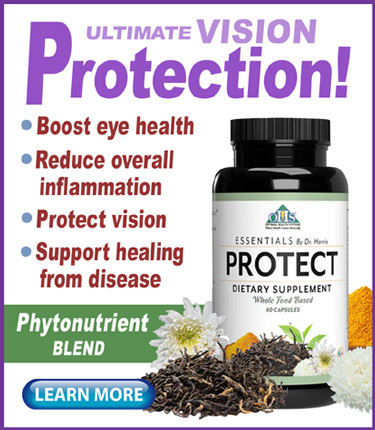With vision problems like macular degeneration and nearsightedness reaching pandemic-like proportions, a new study coroborating the vision benefits of zeaxanthin and lutein should be widely applauded.
During the past decade the two carotenoid phytonutrients have gained wide recognition for their potent eye-health benefits.
Lutein and zeaxanthin are just two of several hundred carotenoids found in plants, many of which have important antioxidant properties. “Antioxidant properties” means the nutrients protect the body from harmful unstable free radicals that cause inflammation in the body.
Unlike other carotenoids, only lutein and zeaxanthin are found in high quantities in the macula of the eye, giving it its yellowish color.
For both mothers and babies
In the new study, researchers at the John A. Moran Eye Center at the University of Utah demonstrated that providing the two nutrients in a prenatal supplement program conveyed benefits to both pregnant mothers and their babies.
To conduct the randomized clinical trial 47 healthy pregnant women were administered either a placebo or a daily dose of 10 mg of lutein and 2 mg of zeaxanthin. The two carotenoids were supplemented throughout the course of the women’s pregnancies.
Results of the supplementing regimen were measured by tracking changes in both maternal and infant macular pigment, along with skin and serum carotenoid status, over the study period. Also measured were differences in infants’ retinal maturity indicators between the two study groups.
According to the researchers, the test results “showed statistically significant and clinically important increases in maternal and infant systemic and ocular carotenoid levels following supplementation.”
In addition to the carotenoid level increase, supplementation was shown to improve “foveal maturity” in infants, which is a measure of ocular development and function.
(The fovea centralis is a small, central pit composed of closely packed cones in the eye. It is located in the center of the macula lutea of the retina.)
The researchers noted that their findings demonstrated that prenatal supplementation was not only effective, but safe—for both mothers and infants.
The study was funded by the National Institutes of Health and the two supplements were provided by a U.S.-based supplement manufacturer. The findings were published in Ophthalmology Science in September 2024.
Most mothers unaware of the health benefits
Sadly, despite growing evidence of the role of lutein and zeaxanthin in eye and brain health, most prenatal supplement regimens lack these nutrients. This fact is perhaps most detrimental to the child, because many aspects of life-long health are determined in the early infant developmental stages.
Moreover, since the human body does not produce these molecules, it is even more crucial that maternal intake of lutein and zeaxanthin be supplemented as it is the only way infants receive them.
“From the infants’ perspective, the bioavailability of lutein and zeaxanthin could potentially provide an early start for their lifelong physiological and protective roles for the developing retina and infant vision,” said Emmanuel Kofi Addo, OD, of the John A. Moran Eye Center.
“The clinical relevance of differences in foveal maturity observed in our study lies in the potential long-term benefits for visual and cognitive development. Enhanced foveal maturity may improve infant visual acuity and contrast sensitivity. Thus, a well-developed fovea is essential for sharp central vision and is critical for recognizing faces as children grow,” Addo concluded.
– – –
For optimal eye health, check out Essential Protect by Optimal Health Systems. The potent blend in this formula includes lutein, zeaxanthin, curcumin, Vitamin E, and more.
– – –
Sources: Ophthalmology Science, Wikipedia (fovea centralis).


